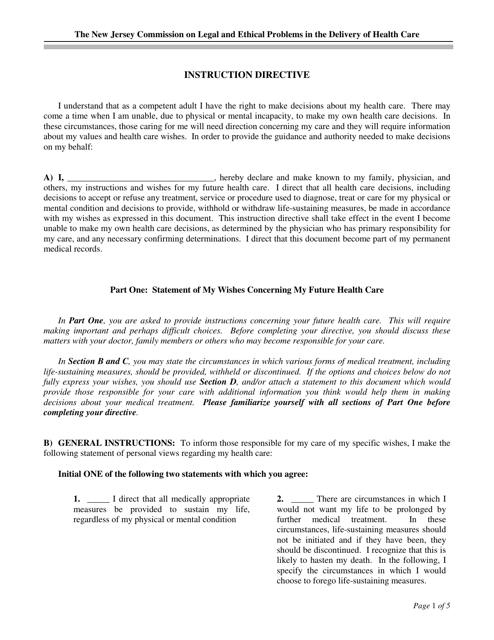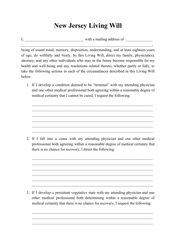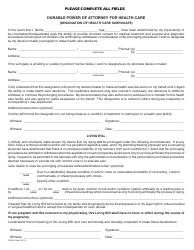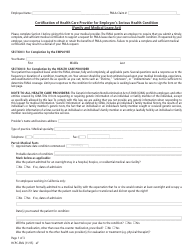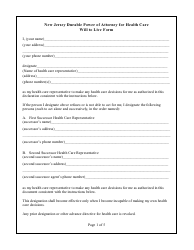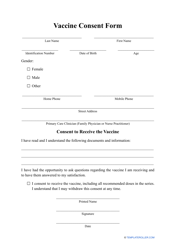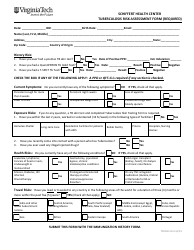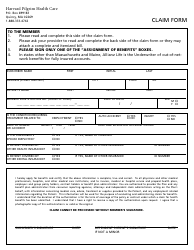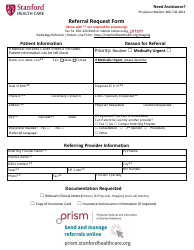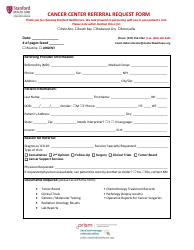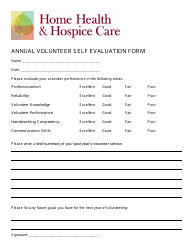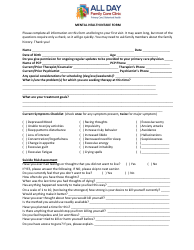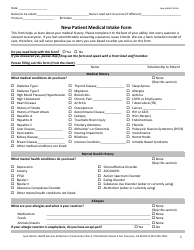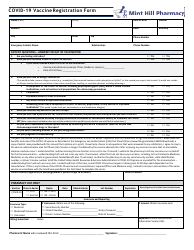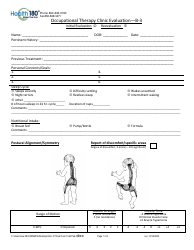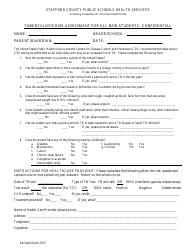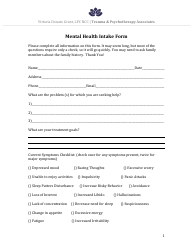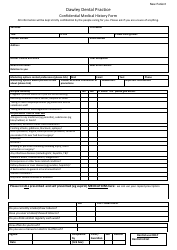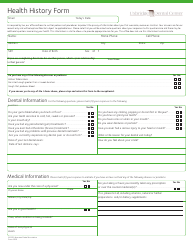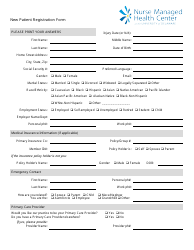Advance Directive for Health Care Form - New Jersey
The New Jersey Instruction Directive (Advance Directives for Health Care) is a crucial document that allows of-age individuals to have legal control over their medical treatment in the event when they are unable to speak for themselves. When a patient does not have their wishes about the kinds of medical treatment they do or do not want to receive specified, these decisions can be placed in the hands of family members, doctors, or even judges, who may know very little about what the patient prefers. The form was released by the New Jersey Department of Health and is available for download below.
Advance Directives provide an efficient and flexible format for planning out future health care and gives patients the option of electing a trusted individual or health professional to oversee their care. There is a difference between a New Jersey Advance Directive and a New Jersey Living Will. The former are oral or written instructions about future medical care in case the individual becomes too ill to communicate. The latter is a specific type of directive that takes effect only when a patient is terminally ill.
A New Jersey Advance Directive is defined and regulated by Sections 26:2H-55 and Section 26:2H-57 of Title 26 . The declaration may be made orally or in writing and presented to the health care representative, physician, nurse, or other health care professional.
What Is a New Jersey Advance Directive?
An Advance Directive is a set of forms that specify an individual's medical treatment preferences and become effective if the individual becomes terminally ill, is seriously injured, in the late stages of dementia or in a coma. The set includes a Living Will and a Medical Power of Attorney - otherwise known as a Health Care Power of Attorney or a Health Care Proxy.
- Living Wills are written for health care professionals and specify the types of life-prolonging treatments or procedures to perform if the individual is in a terminal condition or in a persistent vegetative state.
- A Medical Power of Attorney allows the individual to name a health care proxy to make medical decisions if they become unable to make those decisions for themselves. It is important that the designated proxy knows and understands the patient's wishes and preferences and has a written copy of the Advance Directive for Health Care.
How to Write an Advance Directive in New Jersey?
You'll need to follow these important steps when preparing your document:
STEP 1 - Choose your health care agent - or proxy. This agent should be a person you trust to make medical decisions for you.
STEP 2 - Consider the kinds of treatment you do or do not want to receive in the event of a serious illness or incapacitation. Consider whether you want to:
- Take antibiotics to treat infections;
- Receive cardiopulmonary resuscitation (CPR);
- Be on an extracorporeal membrane oxygenation (ECMO) machine when you cannot breathe on your own;
- Be on a dialysis machine in case of kidney failure;
- Be tube-fed if you can't eat or drink on your own.
STEP 3 - Keep the original completed and signed Advance Directive form with your medical records and give copies out to your health care proxy, physicians, health care providers, and - if necessary - to family members and close friends.
